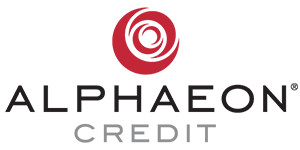A productive consultation sets the foundation for a successful procedure and satisfying results. At Cosmetic Surgery & Laser Centers of El Paso, we make sure we understand your goals and answer all of your questions while allowing you to explore all of the options.
During your consultation, we will review your medical history, discuss the details of potential procedures, and go over everything you can expect at each stage. If you have scheduled your consultation and are wondering what you can do to make the conversation with us as productive as possible, you can read through these tips for preparing for your consultation. We are always available by phone if you have more specific questions about your consultation that you would like to have answered before you arrive.
Common Plastic Surgery Procedures
At our center, we offer a range of plastic surgery procedures to address different aesthetic goals. Some of the most common are:
- Breast Augmentation: This procedure involves using implants or fat transfer to increase breast size or restore volume lost after weight reduction or pregnancy.
- Liposuction: Liposuction removes excess fat deposits from areas like the abdomen, thighs, and arms, refining body contours.
- Rhinoplasty: Often called a “nose job,” this surgery can reshape the nose for aesthetic reasons or improve breathing.
- Facelift: A facelift reduces visible signs of aging in the face and neck by tightening loose skin, smoothing deep folds, and addressing sagging.
- Tummy Tuck: Also known as abdominoplasty, a tummy tuck removes excess skin and fat from the abdomen and tightens the underlying muscles.
- Blepharoplasty: Eyelid surgery helps improve the appearance of the upper or lower eyelids, which can also enhance vision in cases of significant sagging.
How to Define Your Goals and Expectations
The first step in planning a cosmetic procedure is having clear goals and expectations. While we can help you refine these expectations during your consultation, it’s helpful to arrive with an idea of what you hope to achieve. You can share the specific changes you’re looking for, and we can discuss what’s realistic and achievable based on your unique anatomy and desired outcome.
Our consultation is an opportunity to evaluate your suitability for the procedure. We will consider important physical factors such as your overall health, lifestyle and specific anatomical considerations to help determine the best approach for achieving your aesthetic goals.
Finding the Right Surgeon
Finding a surgeon who aligns with your goals begins with researching their experience and specialty. Look for board certification in plastic surgery, as this reflects a strong foundation in both training and skill. Reviewing before-and-after photos can also give you a sense of their style and whether their work matches your aesthetic preferences.
It’s helpful to schedule consultations with a few surgeons to discuss your goals in person. This way, you can see how each surgeon listens to your concerns, answers your questions, and addresses your needs. Feeling comfortable with the surgeon and confident in their understanding of your goals is a positive sign that you’ve found the right fit.
What to Bring to Your Consultation
- Medical Records: Having your medical history on hand, including records of any past surgeries, chronic conditions or allergies, helps the surgeon assess any specific needs or precautions for your procedure.
- List of Medications and Supplements: Bring a current list of any medications or supplements you take, including dosages. This information allows the surgeon to identify any substances that might need adjusting or pausing before surgery.
- Reference Photos: If you have specific goals in mind, consider bringing photos that illustrate what you’re looking for. Whether it’s a feature you admire or an example of results you like, images can help your surgeon understand your vision more clearly.
- Questions or Concerns: Writing down your questions beforehand helps you make the most of your consultation time. This list can include questions about recovery, anesthesia, risks and anything else you’d like clarified.
A Closer Look at Before and After Pictures
Before and after pictures offer a helpful way to see the actual work of a surgeon, allowing you to understand their approach and the kind of results they typically achieve. Reviewing these photos can give you a sense of the surgeon’s technique, helping you decide if their style aligns with your goals.
It’s also useful to keep in mind that before and after pictures have limitations. Each body is unique, and factors like skin tone, body structure, and healing can impact results. During your consultation, discussing these photos with your surgeon can help clarify what’s realistic for your specific features and body type, giving you a clearer sense of the potential outcomes of your procedure.
Researching Your Procedure Options
Researching your options for a procedure helps you understand the choices available and what might suit you best. Many surgeries, like breast augmentation, offer flexibility with incision locations and implant types, allowing for a customized approach to meet your goals. Liposuction also varies by technique, with options like tumescent liposuction, ultrasound-assisted, and super-wet methods, each providing different benefits depending on your needs.
Some patients also explore combined surgeries which can offer the benefit of addressing multiple areas at once. Combining a tummy tuck with liposuction or breast procedures can provide more comprehensive results with a single recovery period. Discussing these options with your surgeon gives you the chance to weigh the benefits of combining procedures and explore which combinations might work well for you.
Understanding the Risks and Limitations of Surgery
Before undergoing any surgery, it’s necessary to understand the risks involved. Every surgical procedure carries some level of risk including infection, bleeding, scarring, and reactions to anesthesia. Knowing these potential outcomes helps you make an informed decision and feel prepared for any aspect of recovery that may arise.
Your health and lifestyle also affect both the risks and results of surgery. Factors such as smoking, future pregnancy plans, age, and general health all influence your suitability for certain procedures. If you do smoke, we will discuss whether you are willing to quit both before and after your surgery. If you still plan on having children, we may recommend waiting to have certain procedures such as a tummy tuck so your results are not affected by the pregnancy. Discussing these considerations with your surgeon helps you understand how these factors might impact your surgery and recovery experience.
Preparing Questions to Ask Your Surgeon
Writing down your questions beforehand can help you remember everything you’d like to discuss so you leave the consultation feeling well-informed and confident in your decisions. Here are a few examples of questions to consider:
- What are the realistic outcomes for this procedure based on my body type?
- How long is the typical recovery period, and what can I expect during that time?
- Are there specific risks associated with this procedure, and how can they be minimized?
- What will my post-surgery care involve?
- How often do I need to schedule follow-up appointments?
- If I’m considering multiple procedures, would combining them be possible?
- What steps can I take to prepare my body for the best outcome?
What to Expect During the Physical Examination
During the physical examination, your surgeon will assess the areas you’re considering for surgery to get a clear sense of your unique anatomy. This examination helps them evaluate skin quality, tissue structure, and any specific features that might affect the procedure. Your surgeon may also check your overall health to ensure you’re a good candidate, which can include reviewing your medical history and current lifestyle habits.
For many procedures, body measurements and photographs are taken to plan the surgery precisely and to have a point of comparison for your results. You might be asked to wear comfortable, loose-fitting clothing or a gown for easy access to the treatment area. This part of the consultation is designed to help both you and your surgeon fully understand the approach, giving you a more personalized and tailored treatment plan.
Learning About Different Anesthesia Options
Local Anesthesia
Local anesthesia numbs a small, specific area of the body. For minor procedures, this option allows you to stay awake and alert without feeling pain in the targeted area. It’s often used for quick, outpatient treatments where only a small portion of the body needs to be numbed.
IV Sedation
With sedation, you’ll be relaxed and drowsy, sometimes even falling asleep, while the surgeon works. This method is common for procedures that don’t require full anesthesia. Sedation is typically delivered through an IV and can be adjusted as needed during the procedure. This method is also typically used with local anesthesia, an option known as twilight sedation.
General Anesthesia
General anesthesia puts you in a sleep-like state where you won’t feel, see, or hear anything during surgery. This option is generally used for more extensive surgeries and is administered by an anesthesiologist who carefully monitors your vital signs throughout the procedure. Recovery may take a bit longer with general anesthesia, so it’s typically used when deeper sedation is necessary.
Pre-Operative Instructions
- Nutrition and Hydration: Focus on balanced meals and adequate hydration in the weeks leading up to surgery to support your immune system and overall healing process. Avoid alcohol in the days prior, as it can interfere with recovery.
- Stop Smoking: If you smoke, it’s recommended to stop at least a few weeks before surgery. Smoking can restrict blood flow and significantly slow down healing, increasing the risk of complications.
- Fasting: For procedures involving anesthesia, you may need to fast starting from midnight the night before surgery. This reduces the risk of complications during the procedure.
- Medication Adjustments: Your surgeon will advise on any medications that need to be paused or adjusted. Blood-thinning medications, for instance, are typically avoided as they can increase bleeding during surgery.
- Lifestyle Adjustments: Plan for a period of rest post-surgery. Organize help for household duties or childcare in advance. Also, setting up a comfortable recovery area at home can make your post-operative experience smoother.
About Your Surgeons
Preparing for your consultation also means getting to know the team you’ll be working with. At Cosmetic Surgery & Laser Centers of El Paso, our board-certified plastic surgeons, Dr. Mark Jabor, Dr. Richard Reynolds, and Dr. Jaime Aburto, bring extensive experience and advanced training in fields like plastic surgery, surgical oncology, and reconstructive techniques. They work directly with every patient, from the initial consultation to the final follow-up, providing a seamless, attentive experience that focuses on your specific goals.
Dr. Jabor, Dr. Reynolds, and Dr. Aburto have each built a reputation for integrity, precision, and expertise in aesthetic surgery. Offering a wide range of cosmetic procedures, including innovative options like fat transfer for body contouring, they are known throughout El Paso for their commitment to honest, ethical care. We value the trust our patients place in us and aim to make the journey from consultation to recovery as smooth as possible.
Ready to Transform Your Look?
At Cosmetic Surgery & Laser Centers of El Paso, our board-certified plastic surgeons Dr. Mark Jabor, Dr. Richard Reynolds and Dr. Jaime Aburto are committed to helping you achieve your aesthetic goals. With extensive experience and advanced training, we provide personalized care and exceptional results that align with your vision.
Take the first step toward enhancing your appearance. Contact Cosmetic Surgery & Laser Centers of El Paso today at 915-543-5600 or visit our website here to schedule your consultation. Let our expert team help you discover the best version of yourself.





